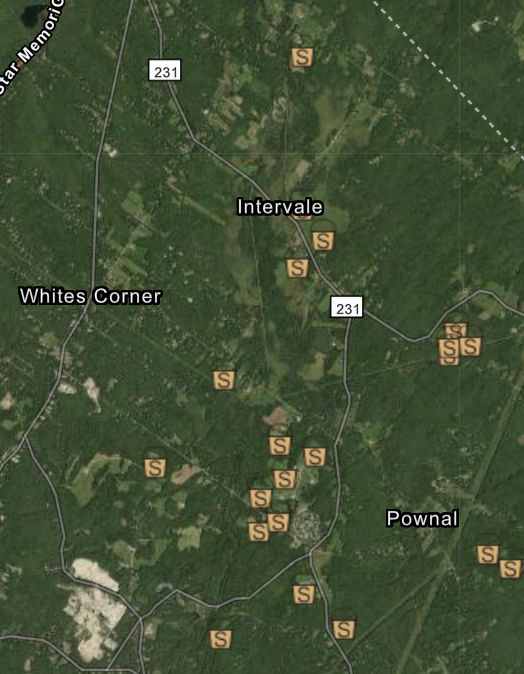|Debra Smith|
The practice of spreading sludge from wastewater treatment plants and paper mills on agricultural lands began in the 1970’s. It seemed like a win-win arrangement at the time: facilities got rid of their byproducts and farmers got free fertilizer.
But in the past couple of years, farmers in different areas of Maine have discovered PFAS (per-and poly-fluoroalkyl substances) in their water and soil where paper mill and sewage sludge had been used as fertilizer on fields. Recently, state officials have warned residents in central Maine not to consume venison and cow’s milk from the area, after high levels of PFAS were discovered in Bowdoinham and Fairfield. An organic farm in Unity shut down after its owners discovered contamination there, a story that reached national media. To date, thirteen farms with high levels of PFAS have had their products taken off the market.
PFAS compounds have been used for decades in a vast array of consumer goods, including nonstick cookware, stain-resistant carpeting and fabrics, waterproof clothing, grease-resistant food packaging, and consumer products from dental floss to lotions. PFAS has been linked to a host of health problems, including cancer, kidney malfunction and immune system suppression.
At the request of the state legislature last fall, the Department of Environmental Protection (DEP) went through old files and compiled a map of over 700 licensed sludge application sites across the state. It includes over a dozen in New Gloucester: six at Pineland and the others on smaller farms. The state plans to prioritize testing in 34 communities. New Gloucester is not on the priority testing list, but Gray, Auburn and other nearby towns are. First tier priority sites are those within a half-mile of a drinking water supply. It takes 6 to 12 weeks to get results. If PFAS is found in water samples, the next step is testing soil.

Because a license was issued doesn’t mean that sludge was applied at that location. Two local land owners reported that they were aware that previous owners had applied sludge on a hayfield in the past, but not on most of their land. According to Justin Gray, manager of Pineland’s Produce Division, the Pineland licenses were issued prior to the purchase of the property by the Libra Foundation and what is now Pineland Farms, Inc. No sludge has been applied on the land used for produce, and they have no record of its use on any other land. According to Gray, who consulted with Pineland officials, “After learning of the potential for PFAS contamination in Maine, Pineland Farms voluntarily submitted water samples for testing in 2019, and no PFAS compounds were detected. The milk from the dairy herd at Pineland Farms is sold to AgriMark, a regional, farmer-owned cooperative, which tests milk for PFAS on a periodic basis. Pineland Farms will continue to monitor the situation as it develops.”
Sarah Alexander, executive director of the Maine Organic Farmers and Gardeners Association (MOFGA), said her organization is partnering with the Maine Farmland Trust (MFT), the DEP and farmers to address PFAS contamination. MOFGA and MFT established an emergency fund for income replacement and mental health support, as well as for covering the costs of testing for farms not in Tier 1. MOFGA has detailed information for farmers on their website. MFT works closely with farmers in their network, including two “Forever Farms” in New Gloucester. They post updates on their website.
Farmers and nearby neighbors who don’t want to wait can obtain testing on their own. See the DEP website for information. The Department of Agriculture, Conservation and Forestry (DACF) also has a lot of information online.
Maine has budgeted $60 million to help address the PFAS issue, and just passed a law (LD 1911) banning spreading biosolids and compost derived from biosolids on agricultural land.
“This is a food safety issue,” explained MOFGA’s Sarah Alexander. “It’s happening all over the country,” and “Maine is the first state to address it.”






